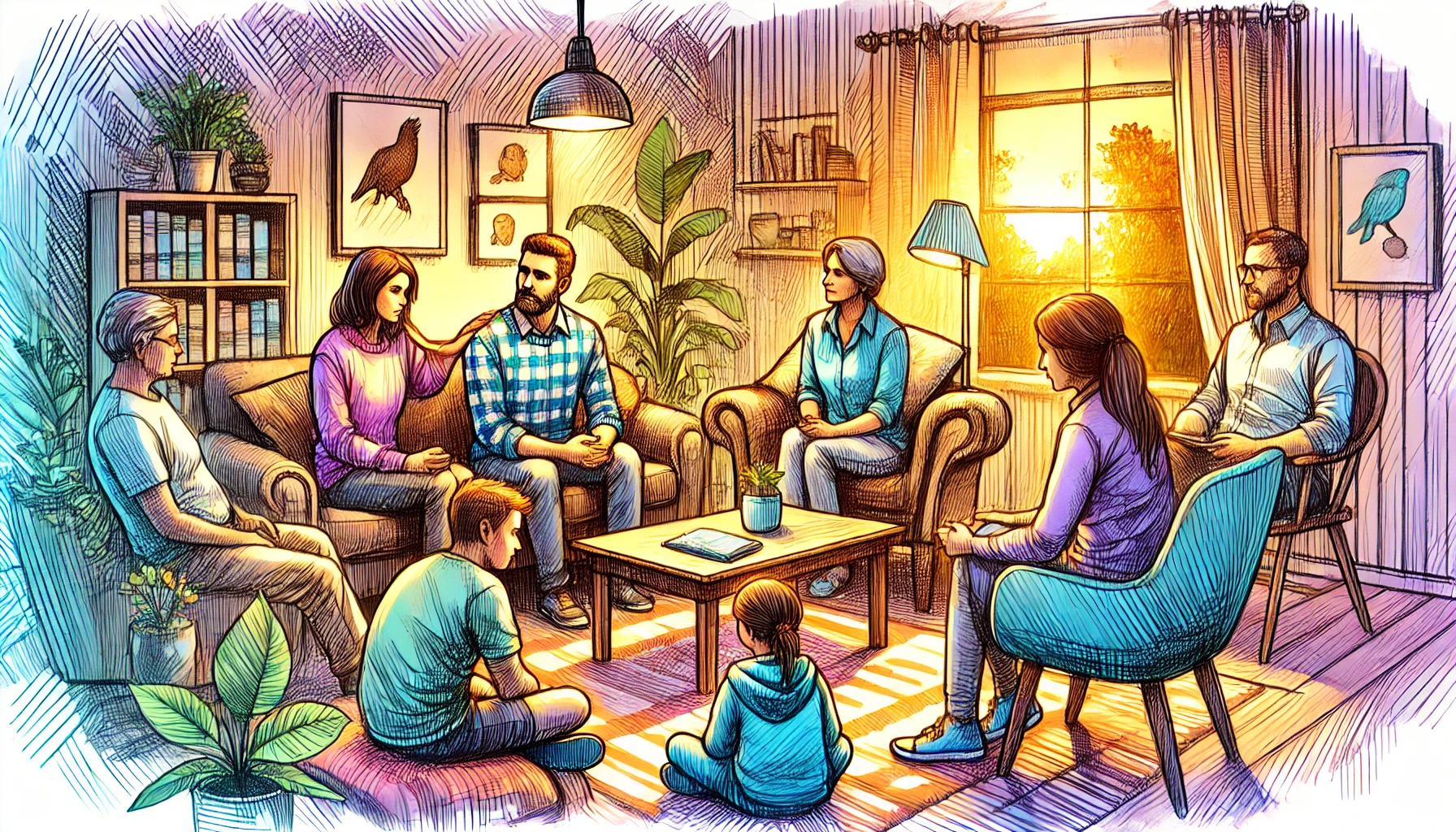Experiencing the loss of a family member is a deeply emotional and often overwhelming event. While many families find solace and support within their close circles, there are times when professional help is necessary to navigate the complexities of grief. Seeking professional assistance can provide families with the tools and support needed to cope with their loss, foster healing, and strengthen their emotional resilience. Here are key reasons and strategies for seeking professional help after a family loss.
1. Understanding the Need for Professional Help
- Grief can manifest in various ways, including prolonged sadness, anger, confusion, or even physical symptoms.
- When grief impacts daily functioning, relationships, or mental health, professional help can be beneficial.
- Signs that indicate the need for professional support include severe depression, anxiety, withdrawal from social activities, or harmful behaviors.
- Recognizing these signs early can prevent further emotional distress and aid in the healing process.
- Professional help is not a sign of weakness but a proactive step towards emotional well-being.
2. Benefits of Grief Counseling
- Grief counselors are trained to help individuals and families navigate the grieving process and address complex emotions.
- Counseling provides a safe space to express feelings, share memories, and discuss the impact of the loss.
- Therapists can offer coping strategies tailored to individual needs, helping manage grief more effectively.
- Counseling sessions can facilitate communication within the family, promoting mutual support and understanding.
- Professional guidance can help prevent prolonged or unresolved grief, supporting long-term emotional health.
3. Types of Professional Support
- Individual Therapy: Offers personalized attention and strategies to cope with grief on a one-on-one basis.
- Family Therapy: Helps families navigate their collective grief, improve communication, and strengthen their support system.
- Support Groups: Provide a community of individuals who have experienced similar losses, offering mutual support and shared experiences.
- Grief Workshops or Retreats: Focus on intensive support and education about the grieving process.
- Online Counseling: Accessible and convenient, offering flexibility for those who may not be able to attend in-person sessions.
4. Finding the Right Therapist
- Seek recommendations from healthcare providers, friends, or family members who have experienced loss.
- Look for therapists who specialize in grief counseling and have relevant experience and credentials.
- Consider the therapist’s approach and ensure it aligns with your family’s needs and preferences.
- Initial consultations can help determine if the therapist is a good fit for your family.
- Comfort and trust in the therapist are crucial for effective counseling.
5. Preparing for Counseling Sessions
- Discuss the decision to seek professional help with all family members involved, ensuring everyone is on board.
- Reflect on specific concerns, goals, and expectations for therapy to share with the therapist.
- Be open to the process and willing to engage in discussions and activities suggested by the therapist.
- Keep an open mind and be patient, as the benefits of therapy may take time to become evident.
- Regular attendance and active participation in sessions are key to achieving positive outcomes.
6. Encouraging Participation from All Family Members
- Explain the benefits of therapy and how it can help each family member cope with their grief.
- Encourage open communication about any reservations or fears regarding therapy.
- Respect individual preferences and readiness, offering gentle encouragement without pressure.
- Highlight the importance of mutual support and collective healing within the family.
- Foster a supportive environment where each member feels comfortable expressing their needs and feelings.
7. Utilizing Additional Resources
- Books, articles, and online resources about grief and loss can complement professional counseling.
- Educational materials can provide insights into the grieving process and offer practical coping strategies.
- Consider attending workshops or seminars on grief and bereavement for additional support and education.
- Engage in self-care practices such as mindfulness, meditation, or journaling to support emotional well-being.
- Community resources, such as local grief support groups or bereavement services, can provide additional support.
8. Monitoring Progress and Adjusting as Needed
- Regularly evaluate the effectiveness of the therapy and the progress being made.
- Discuss any concerns or adjustments needed with the therapist to ensure the approach remains effective.
- Be open to trying different therapeutic approaches or techniques if necessary.
- Celebrate small milestones and improvements, recognizing the efforts and progress of each family member.
- Continued monitoring ensures that the therapy remains aligned with the family’s evolving needs.
9. Addressing Specific Grief-Related Issues
- Professional help can assist in addressing specific issues such as traumatic grief, unresolved conflicts, or complex family dynamics.
- Therapists can provide specialized strategies for dealing with unique challenges related to the loss.
- Addressing these issues in therapy can prevent long-term emotional distress and promote healthier coping mechanisms.
- Specialized support ensures that all aspects of grief are adequately addressed and managed.
- Effective resolution of specific issues supports overall emotional healing and well-being.
10. Encouraging Long-Term Emotional Health
- Ongoing therapy or periodic check-ins with a therapist can support long-term emotional health.
- Developing a strong support network and engaging in regular self-care practices are crucial for sustained well-being.
- Encourage open communication about emotions and feelings within the family, promoting a supportive environment.
- Recognize that grief is a long-term process and that ongoing support may be necessary.
- Prioritizing emotional health helps families navigate future challenges with resilience and strength.
Seeking professional help after a family loss is an important step in navigating grief and fostering emotional healing. Understanding the need for professional support, exploring different types of therapy, finding the right therapist, preparing for sessions, encouraging family participation, utilizing additional resources, monitoring progress, addressing specific issues, and promoting long-term emotional health are all crucial strategies. By embracing these approaches, families can find the support and guidance they need to cope with their loss, strengthen their bonds, and move forward with hope and resilience.

